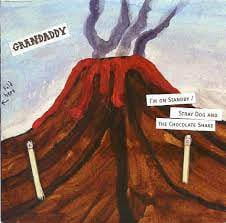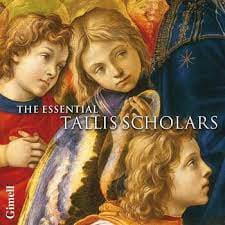October is National Archives Month and the Chatham University Archives is celebrating with a playlist! A Very Archival Playlist! Click HERE to listen to it free on Spotify. With contributions from notable archivists in the US and Canada along with details of what makes these songs so very archival, we invite you to enjoy the music, consider the connections to archives, and tune in on October 12, 2022 for #AskAnArchivist where we’ll be soliciting more archives-themed songs to add to the list! Here goes…
Update: We’ve had a great response from colleagues through the Archivist Think Tank FB group and are adding new selections, listed below the annotations, to the playlist. Got more ideas for songs? Let us know! We’ll add them!
Dirty Work by Steely Dan

Cover art for Steely Dan’s Can’t Buy a Thrill
How many times have you heard the phrase “dusty archives” or other illusions to archive being dark, dank, and grimy? Perhaps you’ve heard of archives as being forgotten, secret, or unwelcoming? Here is our tip… say any of these things to an archivist and prepare yourself, first for a death stare, and then for a lecture on how depictions of archives as being ANYTHING OTHER THAN WELCOMING AND OPEN are ill-informed, outdated, and just completely untrue. Depending on which archivist you’re talking to, they may then break into a rendition of Tom Petty’s “Don’t Do Me Like That” and then start showing you their repository’s Instagram feed and online collections and exhibitions and asking about your research interests and recommending relevant collections.
It is also worth noting here that the narator completes their work despite feeling devalued.
I’m a fool to do your dirty work
Oh yeah
Many archivists are passionate about their work and continue in their careers with an abject recognition that their work is undervalued and our collections under-resourced. Whether that valuation results from gender-based income disparities persistent in professions historically dominated by women-identifying individuals or because a lot of people don’t understand what archivists do, the unfortunate reality is that most archivists face a disproportionately low income ceiling relative to other professions requiring a master’s level education.
Like the castle in its corner
In a medieval game
I foresee terrible trouble
And I stay here just the same
This devaluation extends to all resources relating to the care of archival collections. Dependent upon grant funds to enact preservation measures or reliant upon consultants to voice concern about needed infrastructure like climate control, archivists seek to overcome avoidable losses with whatever tools can be mustered.
I Turn My Camera On by Spoon
Selections by Patrick Gavin, Teaching and Learning Librarian, Huron University College, London, Ontario, Canada

Cover art for Spoon’s Gimme Fiction
Spoon has a lot of very archivally-titled songs. Playlist options from Spoon include: All the Negatives Have Been Destroyed, Plastic Mylar, The Delicate Place, Before Destruction, and The Book I Write. Ultimately, I picked I Turn my Camera On because of how it reflects the idea of “archival objectivity.” It’s also pretty rockin.
I turn my camera on
I cut my fingers on the way, on the way
The way I’m slippin’ away
In an interview with NPR, Spoon’s Britt Daniel shares that the song is about emotional distance. Daniel states, “The idea of instead of engaging with the world you’re holding a camera up which, a) puts a camera in front of your face, and b) puts some distance between you and the outside world. And you’re sort of documenting the world.”
I turn my feelings off
You made me untouchable for life
And you wasn’t polite
To me, this verse relates to a controversial notion about “archival objectivity” as a basis of archival authority. Contemporary archivists increasingly recognize the impossibility of their own impartiality as well as the need to preserve materials reflecting a more inclusive and diverse range of records creators. Gaps in the historical record relating to minoritized communities are a reflection of earlier “impolite” views and efforts to engage and empower more voices reflect an increased focus on equity in the archival profession.
I’m On Standby by Grandaddy

Cover art for Grandaddy’s I’m On Standby/Stray Dog And The Chocolate Shake 7 inch
Hardware and software obsolescence are major challenges to the preservation of born digital and digitized records with long-term historical, fiduciary, or cultural value. With this song, we can imagine the speaker as an obsolete software, like WordPerfect, dodging requests for cloud integration or the ability to transform documents into a web page that now come standard with word processing tools. The speaker says:
I got good at saying “I gotta go”
Number one at saying “I don’t know”
But from the stories that I heard
You humans require more words
Sympathetically personifying software like this may be a little saccharine, but it does reflect the challenge that comes with preserving digital items that were built to work on software, operating systems, and hardware that have reached end-of-life.
Bye
I’m on standby
Out of order or sort of unaligned
Powered down for redesign
The Chatham Yearbooks from 2003 to 2006, distributed on discs and based on software that requires Windows 95 and Internet Explorer 4.1., are a good example of the need for active digital preservation in the modern archival landscape. These digital records are currently “on standby” in their native file format and copied from the original optical disc carrier. They can be rendered to patrons, but it’s a little complicated and would require a few additional “work orders.”
Miserere mei, Deus, Amplius Lava Me composed by Gregorio Allegri and performed by The Tallis Scholars

Cover art for The Essential Tallis Scholars Album
Control. The Vatican controlled all access to Gregorio Allegri’s Miserere mei Deus, only allowing its performance in the Sistine Chapel on Ash Wednesday and Good Friday of Holy Week. Additionally, the Vatican promised to punish anyone attempting to copy or publish it with excommunication. Mozart, however, couldn’t be stopped. Only 14 years old but already a renowned composer, Mozart attended the 1770 Ash Wednesday performance in the Sistine Chapel and then rushed back to his lodgings to write the entire work from memory. According to the story, he made minor corrections after hearing the Friday performance.
Is it true? Could Mozart have jotted down—from memory—the two chorus parts (sometimes divided to create four groups of simultaneous parts) as well as an additional four singers? Plus, it lasts about twelve minutes (this playlist includes the movement with the high C, Amplius lava me) and is all a cappella, so only voices and no other instruments. We are talking about Wolfgang Amodeus Mozart, sooo…. maybe?
Whether or not this actually happened, Miserere is a shockingly beautiful piece and I’ll never forget the first time I heard it.
Moreover, the Mozart story brings up issues relating to access and thievery in archives. Modern high-profile thefts of records function to destroy public access to historical materials through illicit sale to private owners, a practice in stark contrast to Mozart’s pirating of Miserere (the Vatican probably has a different perspective on this). And while some stolen cultural property is accessible to anyone with an entrance ticket to the British Museum, theft of cultural heritage remains a major preservation concern in archives across the world.
Box of Letters by Wilco
Song selection by Matthew Strauss, Director of the Detre Library and Archives at the Heinz History Center, Pittsburgh, PA

Cover art for Wilco’s A.M.
This one is pretty straightforward. A lot of archives contain boxes of letters. The letters could be postcards, personal letters, business correspondence, memos, and notes. Some even consider diaries to be a type of correspondence, written to a future self or to future readers.
An extra archival bit for this entry can be found in the second verse, in which the speaker says:
I wish I had a lotta answers
‘Cause that’s the way it should be
For all these questions
Being directed at me
Loosely interpreted as relating to the process of researching with primary sources, this verse touches upon how the research process invariably generates new questions and prompting re-examination of initial theories.
This verse seems to relate to the reference process, whereby patrons talk to librarians and archivists about their research questions. While librarians and archivists might happen to have an answer to a specific question right on the top of their head, it is more likely that they will propose research avenues where a patron will look for answers. This can be unsatisfying for patrons—whose time for combing through records is limited–and for archivists—whose primary aim is to make records accessible. However, the process of researching with primary sources invariably leads to new discoveries and new considerations. Research is dialogue, after all.
My Back Pages by Bob Dylan
Song selection and annotation provided by Michael P. Martin, Records Advisory Officer, Towns, New York State Archives

Cover art for Bob Dylan’s My Back Pages single
To me, the song captures many archivists’ struggles.
Lies that life is black and white spoke from my skull, I dreamed
Romantic facts of musketeers foundationed deep, somehow
Life is far from black and white and only a fuller understanding provided by records stored in archives can provide.
Romantic ideas can be accepted as facts but again a more complete knowledge can be found in archives. Sometimes those deep well known “facts”, about someone or a place that are the foundation of many beliefs are simply not true.
Yes, my guard stood hard when abstract threats too noble to neglect
Deceived me into thinking I had something to protect
Good and bad, I define these terms quite clear, no doubt, somehow
Ah, but I was so much older then I’m younger than that now
The abstract threats can be anything from fires, mold, water damage, human destruction or ransomware.
And, of course, good and bad I define these terms is part of the appraisal process. What archivists decide to keep or not.
As far as the refrain,
I was so much older then, I’m younger than that now.
I see it as the importance archives and records have in any organization. Typically, they are seen as the forgotten, older papers that no one ever needs or uses. But we all know the moment when something is needed for legal, financial, or just general interest reasons that suddenly the Archives and the records become not only important but seen is a new gem and resource.
Time by Pink Floyd

Cover art for Pink Floyd’s Dark Side of the Moon
How many times have you looked at old pictures and considered them to be of an era so far removed that you can barely relate? Or marveled over that something that happened last month seems like it took place a year ago? Our experience of time is variable, even though the passage of it is a regular as a metronome.
You are young and life is long, and there is time to kill today
And then one day you find ten years have got behind you
Archives and the records they contain present researchers with documentation of earlier times, whether the recent past or 200 years ago. Moreover, they deliver the past into the present and invite reflection.
Every year is getting shorter, never seem to find the time
Plans that either come to naught or half a page of scribbled lines
Hanging on in quiet desperation is the English way
The time is gone, the song is over, thought I’d something more to say
Do the records of successful businesses show a few failures? Do the papers of authors include only those story ideas that came together for publication? Have all architectural drawings been built? Of course not! Sometimes, those unresolved exercises and project failures can become the most informative resources.
Bookends by Simon & Garfunkel

Cover art for Simon and Garfunkel’s Bookends
Gosh, this is such a pretty song. And, such an archival one!
Clocking in at just under 4 minutes and with just 36 lyrics, Bookends is a spare, acoustic exploration of the forward progression of time and physical embodiments that remain of one’s experiences. Reflecting on the past, the speaker classifies with phrases that define, characterize, and summarize a seemingly vast bulk of experience.
Time it was
And what a time it was, it was
A time of innocence
A time of confidences
In describing collections of materials that span across thousands of boxes or terabytes of data, archivists pragmatically summarize a collection’s scope to make an intelligible entry point for research. Do summary descriptions fully convey the impact made by a person, family, or institution? No. But they provide a framework from which deeper research can be guided. Was there more that happened in the past besides “confidences?” Of course, but the speaker notes only the most salient elements of the past.
Long ago it must be
I have a photograph
Preserve your memories
They’re all that’s left you
Here, the speaker touches upon the remnants of the past that move forward in time, like photographs, and implores others to create remembrances for future reflection. That records of hugely impactful times aren’t always actively preserved is evidenced by the dearth of records of the 1918 pandemic, for example.
This speaker, like many archivists today, would likely encourage folks to take the time to reflect on their present and to consider how a record of their experience could move forward in time. The Chatham Archives provides opportunities for community members to contribute documentation of the ongoing Covid-19 pandemic at: https://covid19.chathamarchivesdigital.org/

Cover art for Provincial by John K. Samson
When I Write My Master’s Thesis by John K. Samson
Song selection by Emily Ahlin, MLIS, Director of Archives at the Catholic Diocese of Cleveland
Raise your hand if you’ve ever encountered someone writing a master’s thesis or doctoral dissertation? Right, a common experience for many archivists, especially those with humanities or social science collections (*cough* 95% of us *cough*). This ode to procrastination mentions Archives directly in the song – “Oh the hours I spent in the Archives wearing cotton gloves…” Personally, I’ve never made a researcher wear cotton gloves and I rarely wear them myself but I appreciate the symbolism. Of the percentage of the population that understands what an Archive is, many of them associate some kind of gloves or rules of other kinds with the Archives. Plus, we’ve all met procrastinator researchers. Well, actually, let’s be real – the rest of us, working on our master’s degrees, also procrastinated the research. Maybe not by playing Grand Theft Auto, but we still did it. That fact doesn’t make us any less upset when someone calls us the day before a paper is due and needs help finding a minute detail in box 37 of a collection in order for their whole argument to stay afloat. Maybe that’s why we all have large backlogs… “It’s all gonna change. [When I finally finish processing the backlog.]”

Cover art for Kenny Rogers The Gambler
The Gambler by Kenny Rogers
Song selection by Emily Ahlin, MLIS, Director of Archives at the Catholic Diocese of Cleveland
On the surface, there is not much similar between gambling and archiving, although I would argue that both are addictive (anyone else ever get into a processing groove?). But then the incredibly catchy chorus to this song goes:
“You gotta know when to hold ‘em…” (retention schedule anyone?),
“Know when to fold ‘em…” (generally speaking we don’t really fold things but you have to know what materials to use and when, or when to destroy documents under retention schedule rules),
“Know when to walk away,” (when a collection doesn’t fit your collecting scope)
“And know when to run,” (good luck hiding so that crazy researcher can’t find you)
“You never count your money When you’re sittin’ at the table…” (The poker face you put on so that the donor can’t hear you screaming internally when they hand you a box of moldy papers bound together by rubber bands)
“There’ll be time enough for countin’ When the dealin’s done.” (Have fun removing all those damaging fasteners and doing mold mitigation!)
Additionally, the mentoring the old gambler provides in this song to the young gambler speaks to the collegiality of our profession, and dedication to raising up the next generation of archivists to come after us. And finally, this verse, if you replace “gambler” with “archivist,” and “hand” with “collection,” is simply perfect:
Every [archivist] knows
That the secret to survivin’
Is knowin’ what to throw away
And known’ what to keep…
‘Cause every [collection’s] a winner
And every [collection’s] a loser
And the best that you can hope for
Is to die in your sleep.
That’s all for now, folks! We’ll be joining in on #AskAnArchivist Day on October 12, 2022 to share the list and asking for some additional archival tunes to add to the playlist. What songs do you think carry a secondary, archivally-relevant theme?
Song selections added to the playlist through contributions on Archivist Think Tank:
Hey Ya by Outkast
Camera by Young the Giant
Photograph by Weezer
Take a Picture by Filter
Headline News by Weird Al
Good Riddance by Green Day
Maximum Radiation Level by Man or Astro-Man
Photograph by Ringo Star
Who Lives Who Dies Who Tells Your Story from Hamilton OG cast
Kodachrome by Paul Simon
We Didn’t Start the Fire by Billy Joel
Objects in Space by La Dispute
Sunday Papers by Joe Jackson
Never Gonna Give You Up by Rick Astley
Memory from Cats
Time in a Bottle by Jim Croce
What a Fool Believes by the Doobie Brothers
Be True to Your School by The Beach Boys
Conrl+Del by MegaGoneFree
Love Letters by Pat Boone
Traces by Classics IV
When I Write my Masters Thesis by John K Sampson
Librarian by My Morning Jacket
Burn all the Letters by The Indigo Girls


